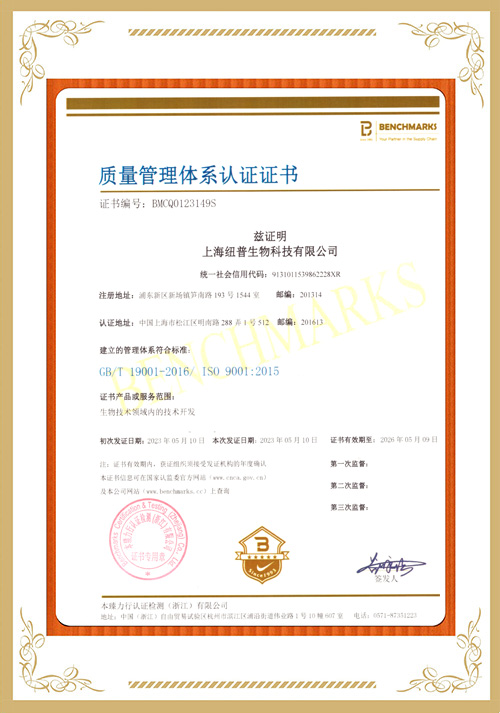- 抗体类型:多克隆
- 抗体来源:兔
- 抗体应用:ELISA, WB, IHC
- 特异性:Human,Mouse,Rat; other species not tested.
产品详情
-
产品名称
LTBP2 antibody
-
抗体类型
多克隆
-
抗体来源
兔
-
抗体亚型
兔IgG
-
抗体描述
LTBP2 Rabbit Polyclonal antibody. Positive WB detected in human testis tissue, mouse testis tissue. Positive IHC detected in human placenta tissue. Observed molecular weight by Western-blot: 240 kDa
-
抗体应用
ELISA, WB, IHC
-
应用推荐
Recommended Dilution:
WB: 1:200-1:2000
IHC: 1:20-1:200
-
特异性
Human,Mouse,Rat; other species not tested.
-
蛋白别名
C14orf141, LTBP 2, LTBP2, LTBP3, MSTP031
-
制备方法
This antibody was obtained by immunization of LTBP2 recombinant protein (Accession Number: NM_000428). Purification method: Antigen affinity purified.
-
组分
PBS with 0.02% sodium azide and 50% glycerol pH 7.3.
-
储存方法
Store at -20℃. DO NOT ALIQUOT
-
背景介绍
LTBP2, also named as C14orf141, belongs to the LTBP family. Latent TGF-b-binding proteins (LTBPs) were initially identified through their binding to the growth factor. LTBPs have subsequently been found to associate with the extracellular matrix. LTBP2 is an elastic fiber-associating protein whose function in elastogenesis is not clear, as a DANCEbinding Protein. (PMID: 17581631 )It may play an integral structural role in elastic-fiber architectural organization and/or assembly. LTBP2 associates covalently with small latent TGF-beta complex via Repeat B and Repeat C. Defects in LTBP2 are the cause of primary congenital glaucoma type 3D (GLC3D). [MIM:613086] LTBP2 is a role in the structural stability of ciliary zonules, and growth and development of lens.(PMID: 20617341) LTBP2 null mutations in an autosomal recessive ocular syndrome with megalocornea, spherophakia, and secondary glaucoma. (PMID: 20179738 ) LTBP2 is a biomarker of Heart failure.
-
参考文献
- Bai Y, Zhang P, Zhang X, Huang J, Hu S, Wei Y. LTBP-2 acts as a novel marker in human heart failure - a preliminary study. Biomarkers : biochemical indicators of exposure, response, and susceptibility to chemicals. 17(5):407-15. 2012.
- Ren Y, Lu H, Zhao D. LTPB2 acts as a prognostic factor and promotes progression of cervical adenocarcinoma. American journal of translational research. 7(6):1095-105. 2015.


